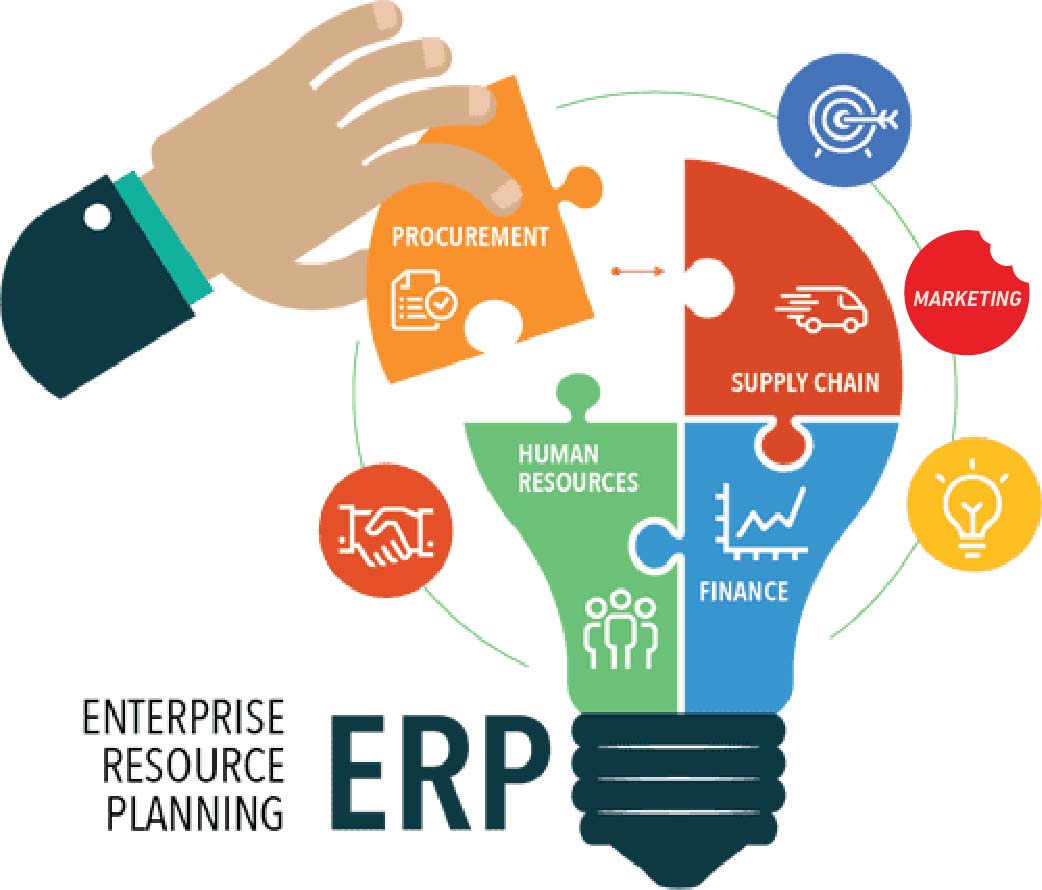<p><strong> The term “ERP” stands for “Enterprise Resources Planning”. In order to fully-understand what ERP does, you need to think of any business as the union of many crucial departments and activities like Human Resources, Inventory Management, Warehousing, Accounting, Supply Chain Management, CRM, etc. Now, what ERP offers your business is an automated solution to integrate all these activities and departments together to form a whole out of these separate units. </strong></p><p><strong> Imagine an automated system that grants the ease of info-sharing among units to facilitate the process and minimize the human error. The accounting department having the reports of the payroll functions instantly shared at the moment of processing, while receiving the reports of the purchasing department after they got the info from warehouses of a certain shortage after they have supplied your factories with a large batch of raw material to be processed and sent to your sales outlets as a final product and to be sold while being able to track your customers’ purchasing behavior and engage them more in your process. Now ERP is the linking funnel among all of these activities. </strong></p><p><strong> Usually ERP solutions are some form of reporting tool and integrated operating system among all business units which grants the ease of data transfer and to take immediate actions according to the data provided. ERP solutions come in handy when they are accompanied by a real-time dashboard that assures full-control over business data and to take immediate corrective courses of action to seize an instant opportunity or to avoid a potential crisis. ERP solutions became so revolutionary and a crucial element for your business success especially after the introduction of Business Intelligence concepts to the market which allows the efficient machine learning process through continuous flow of data provided by the adopted ERP solution.</strong></p><p><strong> The concept of ERP wasn’t adopted in the market until 1990 by Gartner. It was derived from the traditional concept of inventory management in the 1960s which was then evolved into Materials Requirement Planning in the 1970s then Manufacturing Resources planning in the 1980s then ERP concept was adopted in 1990. </strong></p><p><strong> ERP solutions are really beneficial to your business and crucial for your growth as they provide the following:</strong></p><ul><li><strong>ERP solutions allow the continuity of data flow that grants full-control over your business activities and proactively act instantly according to the given data.</strong></li><li><strong>ERP solutions automate and integrate all your business activities and minimize the human error.</strong></li><li><strong>ERP solutions efficiently-manage your customers’ relationship through tracking their transactions and purchasing behavior.</strong></li><li><strong>ERP solutions keep your accounting and financial units aligned with all of your business operations to keep them notified and reduce risk.</strong></li></ul><p><strong> </strong></p><p><strong> Adopting and ERP in this ever-changing market is crucial, yet choosing the solution that suits your business needs is always the trick, so our last tip would be to “choose wisely” and take your time evaluating all of the proposed solutions.</strong></p><p data-f-id="pbf" style="text-align: center; font-size: 14px; margin-top: 30px; opacity: 0.65; font-family: sans-serif;">Powered by <a href="https://www.froala.com/wysiwyg-editor?pb=1" title="Froala Editor">Froala Editor</a></p>
